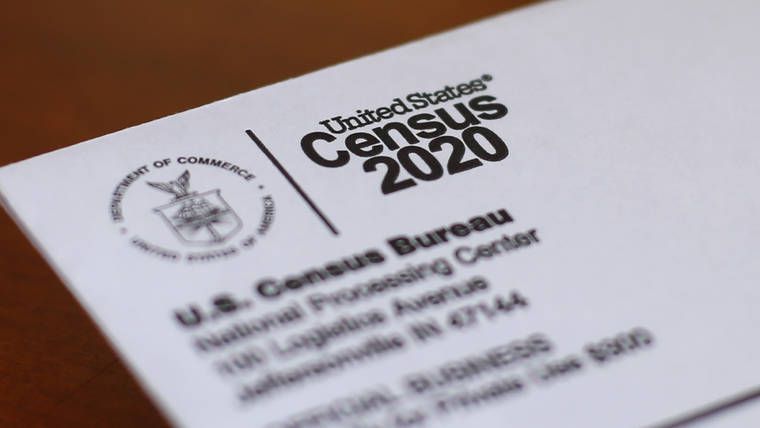With the Census Bureau days away from likely missing a year-end deadline for turning in numbers used for divvying up congressional seats, President Donald Trump’s administration still hasn’t turned over documents showing how it’s crunching the data on a shortened schedule, according to a coalition of municipal governments and civil rights groups.
Attorneys for the municipalities and civil rights groups that sued the Trump administration over shortening the schedule for the 2020 census said in court papers last week that Department of Justice attorneys have resisted turning over requested documents “at every turn — even when specifically ordered to do so by this Court.”
The lawsuit in federal court in San Jose, California, was originally brought by the coalition to stop the census from ending early out of concerns that a shortened head count would cause minority communities to be undercounted.
The coalition of municipalities and advocacy groups is seeking the documents to help assess how complete and accurate the nation’s once-a-decade head count was. By working toward a year-end deadline, the Census Bureau was giving its statistician only half the time originally planned for crunching the numbers — a timeframe that critics say is too short to do an adequate job, especially given hurdles created by the pandemic.
The census helps determine how many congressional seats each state gets in a process known as apportionment, as well as the distribution of $1.5 trillion in federal spending.
Trump administration attorneys said in court papers that they’ve already turned over large numbers of documents, and the ones they haven’t are not releasable. Releasing them would hinder frank discussions during decision-making if participants feared public disclosure and may violate attorney-client privilege, according to Department of Justice lawyers representing the Census Bureau and the Department of Commerce, which oversees the statistical agency.
“This lack of candor would seriously impair DOC’s and the Census Bureau’s ability to foster the forthright, internal discussions necessary for efficient and proper Executive Branch decision-making related to the Census or on any other matter,” said Megan Heller, a Department of Commerce attorney, in court papers.
On Tuesday, the Trump administration asked for a three-judge panel to take over the case from a single jurist, U.S. District Judge Lucy Koh, citing a law that requires such a panel when plaintiffs bring concerns about statistical methods used in the census. Koh has ruled against many of the Department of Justice motions.
The fight over information about how the Census Bureau is analyzing the numbers under a compressed schedule is the latest twist in a lawsuit that already has made one trip to the Supreme Court. The high court’s decision in the lawsuit two months ago allowed the Trump administration to end field operations for the head count in mid-October, two weeks earlier than previously planned.
The coalition says the count was shortened by the Commerce Department so that census data-crunching happened while Trump was still in office in order that his administration can enforce his order to exclude people in the country illegally from the numbers used for determining how many congressional seats each state gets. An influential GOP adviser had advocated doing this in order to advantage Republicans and non-Hispanic whites.
The Supreme Court two weeks ago dismissed a challenge to Trump’s order in a separate lawsuit from New York, saying it was premature. On Monday, the Supreme Court ordered the dismissal of two other lawsuits, and overturned their decisions, in California and Maryland where judges had blocked Trump’s order.
The Supreme Court’s decision is allowing the plan to move forward, but the Census Bureau has admitted discovering data irregularities in recent weeks that put Thursday’s deadline in jeopardy.
If the Census Bureau is unable to turn in the apportionment numbers before President-elect Joe Biden takes office on Jan. 20, it could be a blow to the efforts to exclude people in the country illegal from the apportionment count since the new president is unlikely to pursue it.
When asked this week whether it would meet Thursday’s deadline, the Census Bureau referred to a website that said, “The Census Bureau is working hard to process the data in order to deliver complete and accurate state population counts as close to the December 31, 2020, statutory deadline as possible.”
———
Follow Mike Schneider on Twitter at https://twitter.com/MikeSchneiderAP


